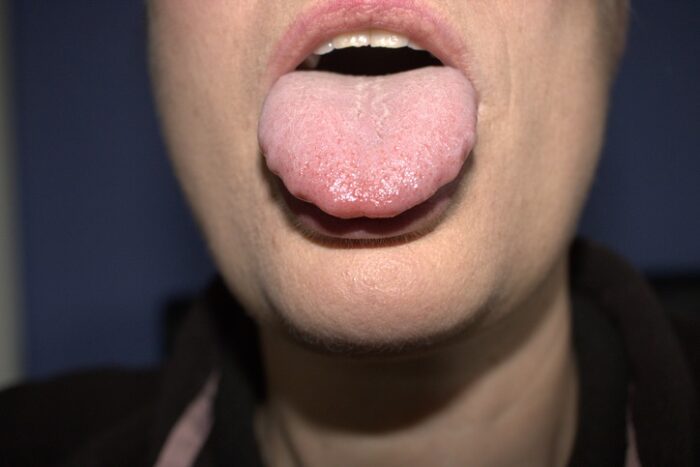Your tongue is a muscular organ that features tiny bumps that allow you to taste. A healthy tongue appears moist, pink, and smooth. If you notice that the edges of your tongue have a rippled effect, you might worry that your oral health is in danger.
This scalloped appearance in the tongue develops when the teeth create impressions on the tongue’s edge. Though abnormal, these indents do not always warrant urgent attention from a dentist.
However, you should pay attention to the wellness of your tongue because it could be an indication of your well-being. Knowing why this condition might develop can allow you to keep the rest of your smile healthy. Read on to learn four potential causes of a scalloped tongue.

Dehydration
Dehydration is one of the most common reasons you might develop a scalloped tongue. When your body lacks water, you can notice a number of effects, including the swelling of organs like your tongue in an effort to retain moisture. As the tongue grows in size, it will press against the back of your teeth. This will create an impression on the tongue that affects its shape and appearance.
To avoid this and other ill effects, stay hydrated by drinking plenty of water. You should consume at least eight eight-ounce glasses of water each day to maintain adequate hydration levels. If you have dehydrating agents like caffeine or alcohol, you may need to drink more water to compensate.
Chronic Bruxism
Many people have a habit of clenching or grinding their teeth. Not only could this grating of the teeth against one another exert pressure on the teeth that could lead to worn or broken dental structures. But chronic bruxism might create pressure on your tongue that can make it appear scalloped as well.
High stress levels might lead to a teeth-grinding habit. Find ways to help yourself relax to protect your oral health. Sometimes bite problems can cause bruxism, so talk to your dentist to determine the best way to address bruxism.
Sleep Apnea
Obstructive sleep apnea refers to a disorder in which the soft tissue at the back of the throat relaxes during sleep and collapses to create a blockage in the airway. This can lead to a brief cessation of breathing that, while not acutely life-threatening, can create health problems. The strain of respiratory concerns can make the tongue press against the teeth, giving it a scalloped appearance.
You should not ignore signs of sleep apnea. Your dentist can treat mild cases of sleep apnea with a custom night guard that can keep the jaw aligned in a position that reduces the risk of tissue collapse. Learn more by calling your dentist today.
Other Underlying Health Problems
A scalloped tongue could point to underlying medical concerns, including nutritional deficiencies. Make sure you have a balanced and nutrient-rich diet so that you can keep your mouth and the rest of your body looking and feeling its best.
Hypothyroidism and other health conditions might cause swelling in the tongue and elsewhere in the body, which can lead to a scalloped tongue. If the indented look in the tongue seems to occur on a chronic basis, talk to a dentist or medical professional to determine the cause.
